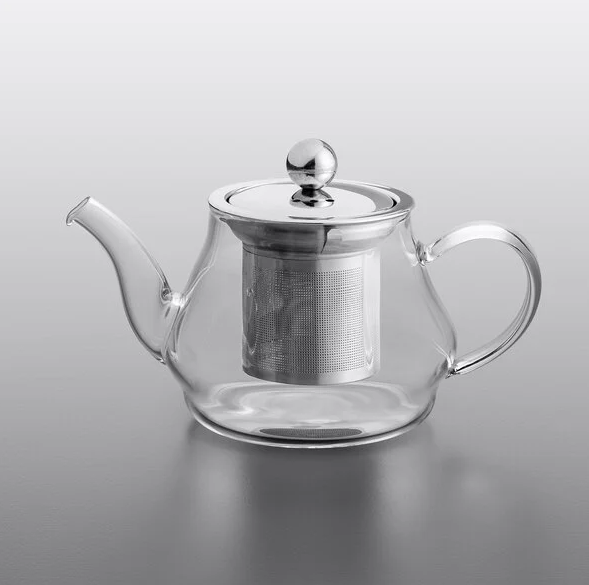Health Benefits to Drinking Honey Tea
This post may contain affiliate links. Simple Loose Leaf is a participant in the Amazon Associates Program, an affiliate advertising program designed to provide a means for sites to earn advertising fees by linking to Amazon.com. Many tea drinkers can’t imagine drinking a cup of tea without adding at least a little bit of honey. And it’s not only to sweeten up the tea. Honey will dissolve much easier in a cup of hot tea than in a cup of cold water. It may provide numerous health benefits and enhance the benefits of tea, and it may even enhance the flavor profile of many tisanes.
What is honey tea?
Honey tea is tea sweetened and enriched with honey. Unlike other teas, it’s not made with pure honey, because honey can’t be steeped in water. However, some tea blends may contain dried honey granules that will dissolve in hot water. There are many types of honey, and many types if tea. Options for making a perfect cup of honey tea are almost unlimited.Types of honey
Honey is made by honeybees from flower nectar. It can be made from different flowers, and each of them will have a slightly different color and texture. One of the most popular honey world-wide is manuka honey made from manuka tree originating in New Zealand. It may have many potential health benefits and comes with a high price tag. It’s believed that manuka honey has higher concentrations of methylglyoxal than other types of honey, and may provide strong antibacterial properties. However, that doesn’t make other honey less valuable. In fact, studies showed that higher concentrations of methylglyoxal in manuka honey don’t mean stronger benefits. In fact, honey with lower levels of methylglyoxal may be as potent. Other popular types of honey are lavender honey, sage honey, pine honey, chestnut honey and linden flower honey. Each of them will have a slightly different color, texture and composition. The third type of honey is a honeydew honey. It’s made by bees from secretion or nectar from other insects. They are usually very dark and quite intense. Some of the most popular honeydew honeys are pine honey and beechwood honey.Raw vs traditional honey
Honey can come in different forms too. Lately, raw honey has been more popular because of its high nutritional value. It’s less processed than regular traditional honey, has a less transparent color and thicker texture, and contains bee pollen too. Traditional honey is often transparent, lighter or darker depending on the nectar source. However, both of them will provide health benefits. Unlike raw honey, traditional honey may sometimes be mixed with other sugars, water or syrups. The water content of traditional honey will usually be 20%[1] or less. In the United States, grade A honey should have a water content of less than 18.6%[2]. Whenever possible, buy honey from a reliable source. If you want to check if your honey is pure, place a bit of honey on a kitchen towel. Honey without added water will not be absorbed. Furthermore, honey with added water will dissolve much faster in water, unlike pure honey - either raw or traditional. Although these steps may help you distinguish low quality from high-quality honey, it’s still possible that some of them will contain other sugars or syrups.Tea health benefits disclaimer
This article is for informational purposes only. It’s not intended to replace medical advice, diagnosis, or treatment. Every person is different and may react to different herbs and teas differently. Never use teas or herbs to treat serious medical conditions on your own. Always seek professional medical advice before choosing home remedies.
Flavor profile of honey tea
Honey is famous for its unique sweet flavor. Different types will have a different flavor, depending on the type of nectar. For example, lighter acacia honey has a more delicate flavor and light color. Sage honey is stronger, sometimes even bitter. Chestnut honey is very dark, with a specific intense scent and slightly bitter, and even slightly smoky flavor. One of the most popular traditional types of honey is meadow honey made from a wide variety of meadow flowers. It will have a different flavor, texture and color, depending on the terroir. All real honey will have more or less complex flavor with different flavor notes. However, generic commercial honey mixed with water or other sugars will probably only have a sweet sugary taste.Honey Tea Benefits
Honey is often described as one of the healthiest natural foods in the world. Many times it’s a first aid for treating sore throat, relieving cough, boosting immune system and promoting better sleep. Different honeys will contain different compounds. Every honey contains water, sugars, amino acids, minerals, phenolic compounds, and other compounds. Honey may provide the following benefits:-
Boosting immune system
-
Antibacterial activity
-
Anti inflammatory activity
-
Sore throat remedy
Best teas to pair with honey
If you like sweet teas, honey can make any cup of tea better. Traditionally, not all teas are served with honey. Pure Chinese and Japanese teas are often drunk without any additives, as they already have a very complex flavor that might be significantly changed by adding honey, sugar or milk. However, if you still want to add honey, brew a strong cup and pay attention to the flavor and texture of honey. For example, light and gentler acacia or linden flower honey may be great for adding to lighter teas, such as Dragon Well green tea or Silver Needle white tea. Chamomile may taste great with just about any honey, including stronger ones such as sage or lavender honey. Stronger black teas may go very well with stronger darker honey such as pine honeydew or chestnut honey. Earl Grey black tea or citrus fruit teas will taste wonderful with a teaspoon of bergamot honey or orange blossom honey and roasted oolong teas may go well with a bit of avocado honey. When choosing the right pair, match them with the flavor of your tea to enrich natural notes. For example, add lavender honey to lavender herbal tea, mint honey to mint tea or rosemary honey to rosemary tea. When in doubt, choose lighter honey – clover, acacia or lighter wildflower honey.References:
[1] https://www.researchgate.net/publication/304011775_Honey_Composition [2] https://www.researchgate.net/publication/304011775_Honey_Composition [3] https://www.ncbi.nlm.nih.gov/pmc/articles/PMC5822819/ [4] https://www.researchgate.net/publication/342348058_Prospects_of_honey_in_fighting_against_COVID-19_pharmacological_insights_and_therapeutic_promises [5] https://journals.plos.org/plosone/article?id=10.1371/journal.pone.0224495 [6] https://journals.plos.org/plosone/article?id=10.1371/journal.pone.0224495 [7] https://www.jstor.org/stable/24906609?seq=1 [8] http://njppp.com/fulltext/28-1478482106.pdf
More from:
SLL



Leave a comment